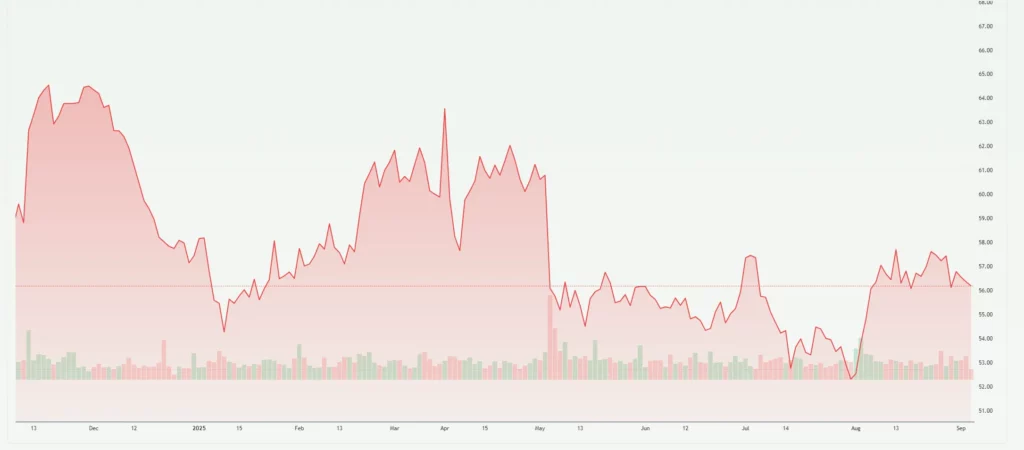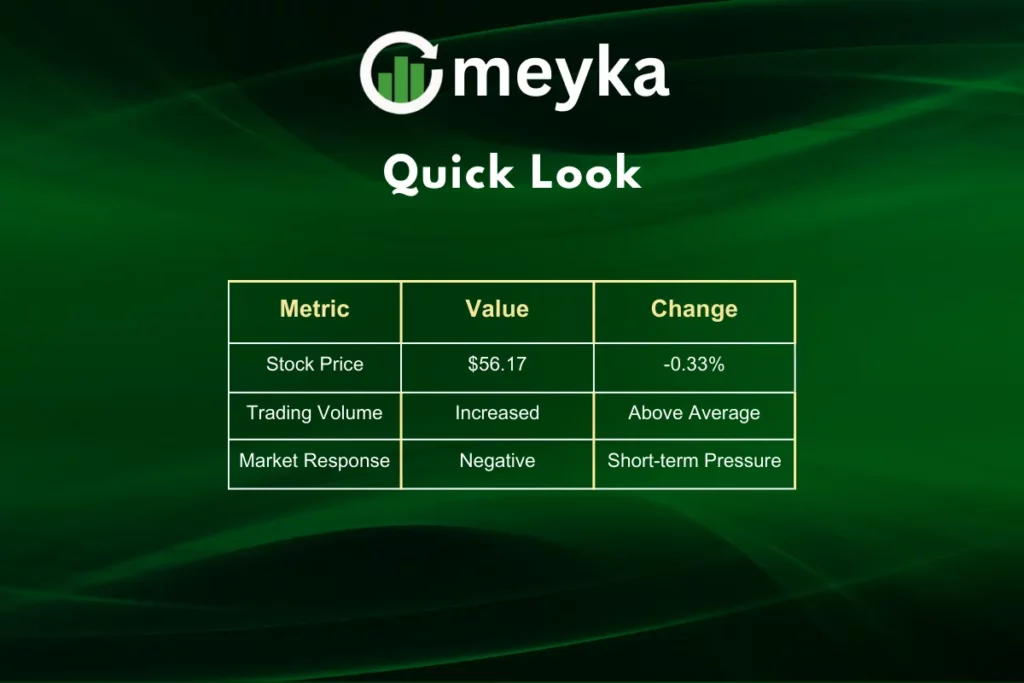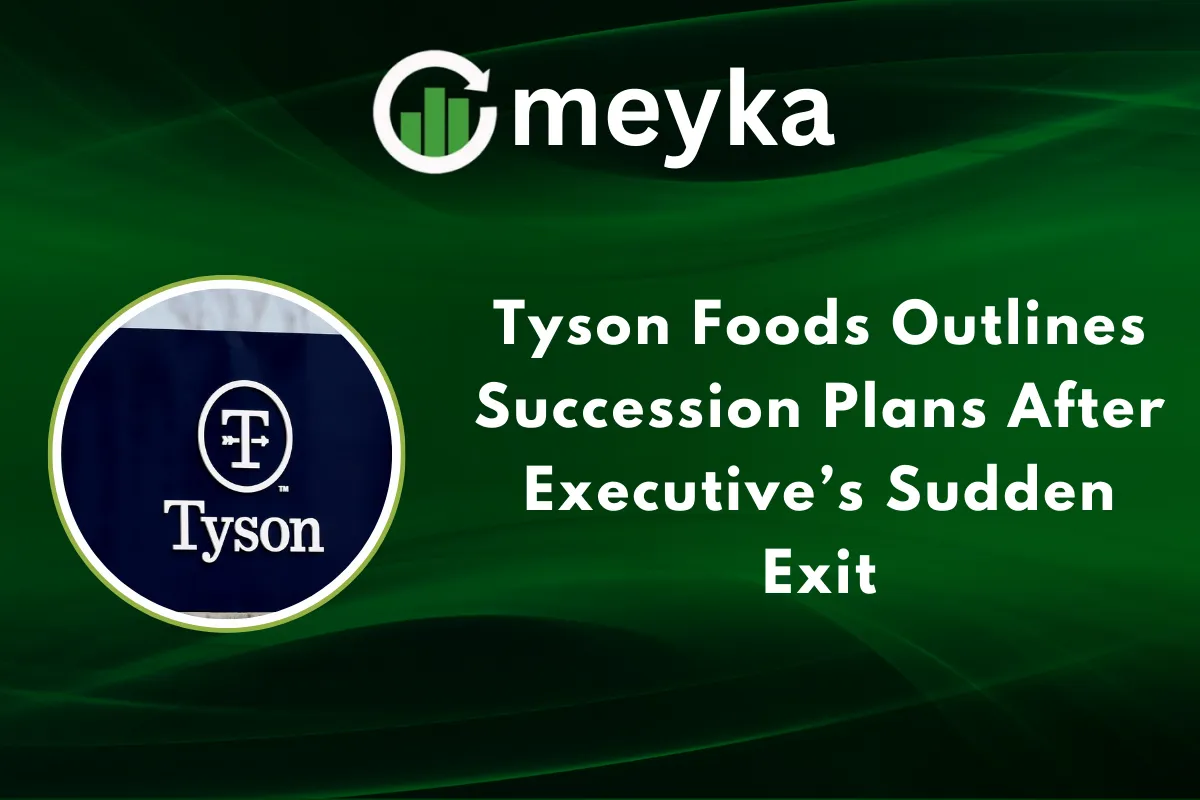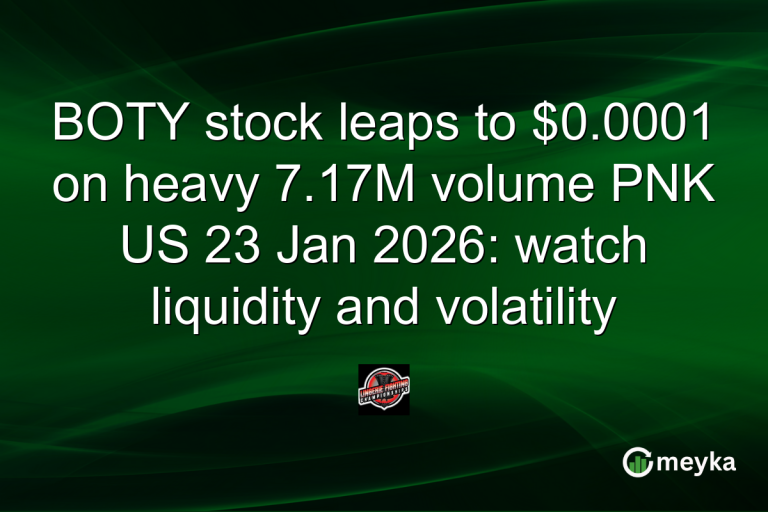Tyson Foods Outlines Succession Plans After Executive’s Sudden Exit
Tyson Foods faces new leadership challenges after losing a key executive. The food giant announced succession plans to address investor concerns following Brady Stewart’s departure.
The company sought to reassure investors that it has succession plans in place after an executive seen by some analysts as a possible future CEO left the company over conduct violations. The leadership change comes at a critical time for Tyson Foods as the company navigates market pressures in the stock market.
Tyson Foods stock dropped following news of the executive departure. Investors watch closely as the company implements its succession strategy to maintain operational stability and growth.
Executive Departure Shakes Tyson Foods Leadership
Brady Stewart departed the company effective immediately after the company determined certain actions he took violated the Tyson Foods Code of Conduct. Stewart held significant responsibilities as Chief Supply Chain Officer, overseeing multiple business units.
The timing of Stewart’s exit caught analysts off guard. Many viewed him as a potential successor to current leadership positions within the organization.
With Stewart’s departure, the Supply Chain, Food Safety, Health and Safety, Environmental, and Transportation functions will report directly to President and CEO Donnie King.

Stock Market Impact and Investor Response
Tyson Foods shares experienced downward pressure following the announcement. The stock market reacted swiftly to news of the executive’s sudden departure and potential leadership vacuum.
Trading activity increased as investors assessed the implications. Market analysts began evaluating the company’s leadership depth and succession readiness.
The company’s stock performance reflects broader investor concerns about management stability. Tyson Foods must now prove its leadership transition capabilities to restore market confidence.
Market Performance Metrics
The following table shows key market indicators following the announcement:

New Leadership Appointments and Succession Plans
Devin Cole has been named Group President of Poultry, succeeding Wes Morris. Cole also continues overseeing Tyson Foods’ Global Business Unit, demonstrating the company’s internal promotion strategy.
Tyson Foods emphasized its succession planning capabilities to investors. The company maintains a pipeline of qualified executives ready to step into leadership roles when needed.
CEO Donnie King expressed confidence that under Devin’s leadership the business will continue to thrive. This statement aims to reassure stakeholders about operational continuity.
Leadership Structure Changes
The executive reorganization includes these key changes:
- Devin Cole assumes expanded responsibilities across multiple divisions
- Direct reporting relationships shift to CEO Donnie King
- Transition support provided by retiring executives
- Succession plans activated for critical positions
Business Unit Performance and Strategic Focus
Tyson Foods continues managing challenges across its business segments. The beef division faces ongoing profitability pressures while other units show improvement.
The company raised its annual revenue forecast recently. Profit margins improved in several business units despite market headwinds affecting the stock market performance.
Supply chain management remains critical to operations. The departure of the Chief Supply Chain Officer requires swift action to maintain efficiency and cost control.
Operational Priorities
Management focuses on these strategic areas:
- Supply chain optimization and cost reduction
- Business unit profitability improvement
- Leadership development and succession planning
- Market position strengthening across protein segments
Industry Context and Competitive Landscape
The food processing industry faces multiple challenges affecting stock market valuations. Tyson Foods competes in a demanding environment requiring strong leadership and operational excellence.
Consumer demand patterns continue evolving. Companies must adapt quickly to changing market conditions and consumer preferences.
Supply chain disruptions remain a concern. Effective leadership in supply chain management becomes increasingly important for maintaining competitive advantages.
Investor Outlook and Future Considerations
Tyson Foods must demonstrate leadership stability to maintain investor confidence. The stock market closely monitors management transitions at major corporations.
Succession planning becomes a key investor consideration. Companies with robust leadership pipelines typically receive better market valuations and investor support.
The company’s ability to execute its succession plans will impact future performance. Investors evaluate both short-term stability and long-term growth prospects.
Final Thoughts
Tyson Foods navigates leadership transition challenges while maintaining operational focus. The company’s succession planning will determine its ability to sustain growth and investor confidence in the competitive stock market environment.
Management changes create both risks and opportunities for the organization. Tyson Foods must execute its succession strategy effectively to maintain its market position and deliver shareholder value.
The food industry requires strong leadership to address ongoing challenges. Tyson Foods succession plans will be tested as the company moves forward with new leadership structures.
Disclaimer:
This content is made for learning only. It is not meant to give financial advice. Always check the facts yourself. Financial decisions need detailed research.






